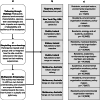Realizing multispecies justice through a capability approach to promote nature-based solutions
- PMID: 40453562
- PMCID: PMC12119368
- DOI: 10.1038/s42949-025-00205-z
Realizing multispecies justice through a capability approach to promote nature-based solutions
Abstract
The design and implementation of nature-based solutions (NBS) in cities are often limited by an anthropocentric approach that prioritizes utilitarian goals instead of the diverse needs and abilities of multiple species that would support ecological flourishing. This paper starts from the premise that multispecies justice (MSJ) thinking provides a needed biocentric approach to NBS, and explores how a Capability Approach (CA) can be a bridge to integrate MSJ into urban NBS. The premise was tested through an embodied methodology used to design and deliver multi-city workshops in urban novel ecologies; settings often described as abandoned and hosting novel ecosystems. This research improved the understanding of participant's awareness and knowledge of more-than-human agencies in shaping space and time, and in identifying social and environmental vulnerabilities and opportunities that can foster or hinder multispecies flourishing. We conclude by exploring how the CA can bridge NBS and MSJ and argue for the potential of marginal, less-valued novel ecologies as important elements of socially and biodiversity-rich urban futures.
Keywords: Environmental social sciences; Environmental studies; Geography.
© The Author(s) 2025.
Conflict of interest statement
Competing interestsThe authors declare no competing interests.
Figures




References
-
- Li, M. et al. Solution to what? Global assessment of nature-based solutions, urban challenges, and outcomes. Landscape and Urban Planning, 256 (2025).
-
- Betz, N. & Coley, J. D. Human exceptionalist thinking about climate change. Sustainability. 14, 9519 (2022).
-
- Maller, C. Re-orienting nature-based solutions with more-than-human thinking. Cities. 113, 103155 (2021).
-
- Lele, S. et al. Ecosystem services: origins, contributions, pitfalls, and alternatives. Conserv. Soc.11, 343–358 (2013).
-
- Rupprecht, C. et al. Multispecies sustainability. Glob. Sustain.3, e34 (2020).
LinkOut - more resources
Full Text Sources
Research Materials
Miscellaneous
